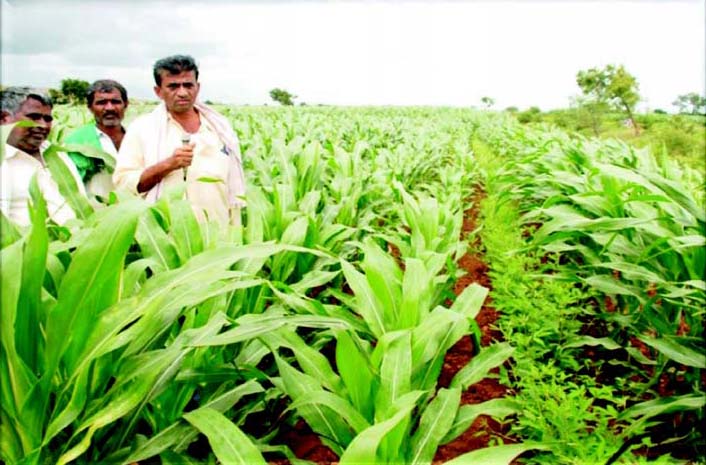Rivers
A student uses India Water Portal on Twitter (@indiawater) for research
Posted on 12 Apr, 2012 04:10 PMShe found Twitter to be a useful place to conduct her research on issues of governance and institutions in watershed management programs in India and the U.S., because it enabled her to pick the resources she found useful without having to go through lots of articles and research papers.
Central Water Commission and ISRO launch Water Resources Information System (WRIS), a comprehensive solution for accessing data on water in India
Posted on 11 Apr, 2012 02:36 PMDear India Water Portal readers,
PPP models for irrigation projects – Why and why not?
Posted on 10 Apr, 2012 11:17 AMAuthor : Rasika Gokhale Athawale
Climate change and water sources: Strengthening community preparedness and water use regulations hold the key
Posted on 10 Apr, 2012 10:34 AMAuthor : Neelima Garg
Scientific and technological approaches for sustainable use of water resources: Summary of the Global Indian Scientists and Technocrats Forum convention held at Pune, in December 2010
Posted on 09 Apr, 2012 11:17 PMThe sessions were as follows:
Workshop on Aviral and Nirmal Ganga and Yamuna, Ganga Action Parivar, April 8 -10, 2012, Parmarth Niketan, Rishikesh
Posted on 08 Apr, 2012 01:18 PMOrganiser: Ganga Action
Venue: Ganga Action Office,
Parmarth Niketan,
Rishikesh

Ganga Action is a global family of professionals, engineers, scientists, activists, government leaders and devoted volunteers from all across the world dedicated to serving Mother Ganga. It is a sincere effort to provide effective and sustainable solutions for the millions of people whose lives depends on the purity of the river. This project has been blessed and supported by saints, scholars, yogis, economists, scientists, environmentalists and agriculturalists.
Critical analysis of the overarching issues in Indian agriculture - State of Indian agriculture report (2011-2012)
Posted on 06 Apr, 2012 06:57 PM
The what, why and how of environmental flows: Presentations made during an IUCN training programme in Kathmandu, 2011
Posted on 03 Apr, 2012 01:42 PM Bagmati River at Pashupatinath Temple, Kathmandu, Nepal (Photo: IUCN\Stefano Barchiesi)
Bagmati River at Pashupatinath Temple, Kathmandu, Nepal (Photo: IUCN\Stefano Barchiesi)
Supreme Court order in February 27, 2012 on the interlinking of rivers project A statement and an appeal by concerned citizens to think of all the implications
Posted on 29 Mar, 2012 06:37 PMThe full statement is as follows -
We, the signatories to this statement, wish to record our utmost concern at the Hon’ble Supreme Court’s judgment of 27 February 2012 on the Inter-Linking of Rivers Project (ILR), on the following grounds:
Corporatising water: India's draft National Water Policy - A document published by the Institute for Agriculture and Trade Policy
Posted on 21 Mar, 2012 12:17 PMThe document argues that the latest example of this is India’s Draft National Water Policy (NWP) circulated by the Ministry of Water Resources. At first glance, it appears as if the policy has been taking a holistic approach to water resources management, with a clear recognition of India’s water woes.




